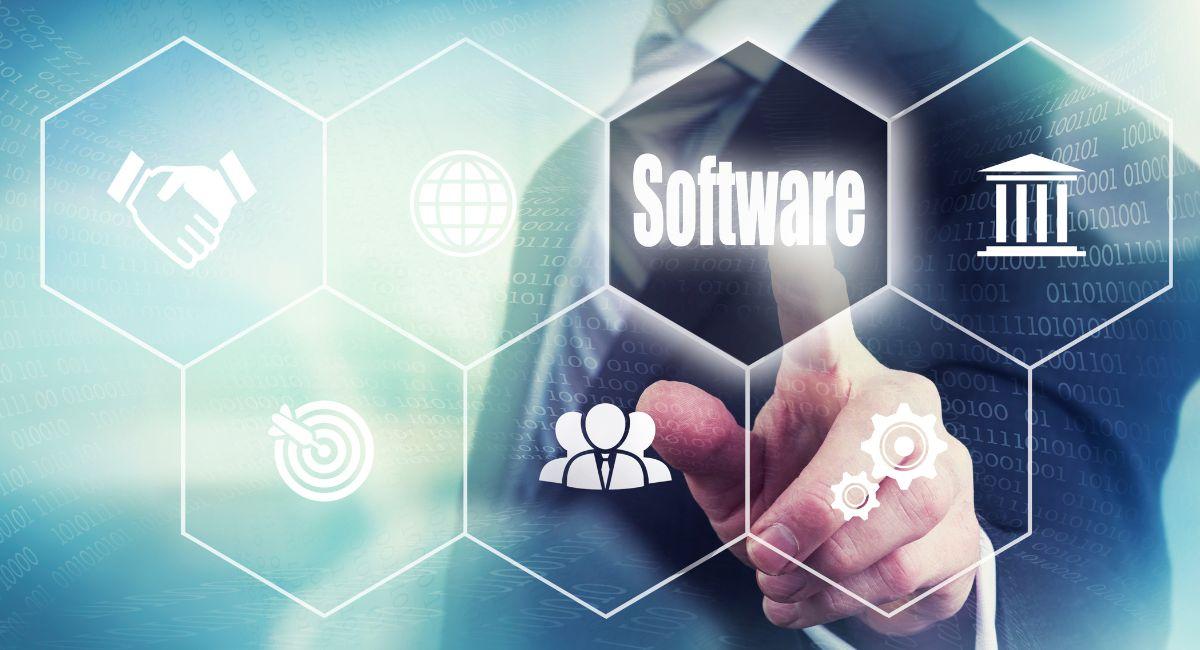Top 6 Amazing Ways AI and Blockchain Can Improve The Transportation Industry
Artificial Intelligence (AI) and blockchain technology are two of the most transformative innovations of the modern era, each with the potential to revolutionize industries in their own right. When AI and Blockchain combine, they offer a synergistic partnership that can unlock unprecedented opportunities across various domains.
At its core, AI is the simulation of human intelligence processes by machines, encompassing tasks such as learning, reasoning, and problem-solving. Meanwhile, blockchain serves as a decentralized and immutable ledger that records transactions across a network of computers. Individually, AI enables machines to analyze vast amounts of data and make intelligent decisions, while blockchain ensures transparency, security, and trust in transactions. Together, they can enhance efficiency, transparency, and security across a multitude of applications.
One of the most promising applications of AI and blockchain integration is in supply chain management. By leveraging AI algorithms to analyze data captured at different points in the supply chain, companies can gain insights into inefficiencies and optimize processes for improved performance. These insights can then be recorded on a blockchain, providing an immutable and transparent record of the entire supply chain journey, from manufacturing to delivery. This not only enhances traceability and accountability but also helps in detecting and mitigating issues such as counterfeiting and product recalls.
Another area ripe for disruption is healthcare. AI-powered systems can analyze vast amounts of medical data to assist in diagnosis, treatment planning, and drug discovery. By integrating blockchain technology, patient data can be securely stored and shared among healthcare providers while ensuring privacy and data integrity. Smart contracts on the blockchain can automate processes such as insurance claims and patient consent management, reducing administrative overhead and improving the overall efficiency of healthcare delivery.
In the financial sector, AI algorithms can analyze market trends and customer behavior to provide personalized financial advice and optimize investment strategies. Blockchain technology can facilitate faster and more secure transactions, eliminating the need for intermediaries and reducing transaction costs. Smart contracts can automate various financial agreements, such as loans and insurance policies, streamlining processes and reducing the risk of fraud.
The synergy between AI and blockchain also extends to the field of cybersecurity. AI algorithms can detect and mitigate security threats in real time by analyzing patterns in network traffic and user behavior. Blockchain technology can enhance data security by providing a tamper-proof record of access and changes to sensitive information. Together, they offer a robust defense against cyber attacks and unauthorized access to data.
Despite their immense potential, the integration of AI and blockchain is not without challenges. Scalability, interoperability, and regulatory concerns are among the key hurdles that must be addressed. However, as research and development in both fields continue to advance, the possibilities for innovation and disruption are boundless. By harnessing the complementary strengths of AI and blockchain, businesses and industries can unlock new levels of efficiency, transparency, and security in the digital age.
Also, read- Top 10 Ways Luxury Brands Are Leveraging Blockchain And AI For Business Impact
Importance of AI and blockchain

AI and blockchain technologies are individually important, but their combined significance lies in their potential to transform industries and address critical challenges in today’s world.
- Efficiency: AI enables automation and optimization of tasks that would otherwise be time-consuming or error-prone. By analyzing vast amounts of data, AI algorithms can streamline processes, improve decision-making, and enhance productivity across various sectors. Blockchain, on the other hand, ensures efficiency by providing a decentralized and transparent system for recording and verifying transactions without the need for intermediaries.
- Transparency and Trust: Blockchain technology offers immutable and transparent record-keeping, which fosters trust among participants in a network. Transactions recorded on a blockchain are tamper-proof, providing assurance of data integrity and transparency. When combined with AI, which can analyze data for patterns and anomalies, this transparency becomes even more valuable for sectors such as supply chain management, finance, and healthcare.
- Security: Both AI and blockchain play crucial roles in enhancing security in the digital landscape. AI-powered cybersecurity systems can detect and mitigate threats in real-time by analyzing patterns in data and user behavior. Blockchain technology, with its cryptographic protocols and distributed architecture, offers robust protection against data tampering and unauthorized access. Together, AI and blockchain create a powerful defense against cyber attacks and fraudulent activities.
- Innovation: The integration of AI and blockchain opens up new possibilities for innovation and disruption across industries. From optimizing supply chains to revolutionizing healthcare delivery, the synergy between these technologies enables the development of novel solutions to complex problems. For example, AI-driven predictive analytics combined with blockchain’s secure data storage can revolutionize personalized medicine by enabling more accurate diagnoses and treatment plans.
- Decentralization: Blockchain technology promotes decentralization by removing the need for centralized authorities or intermediaries to validate transactions. This decentralized architecture enhances resilience and reduces the risk of single points of failure or manipulation. When coupled with AI, which can facilitate autonomous decision-making within decentralized systems, the result is a more democratized and inclusive ecosystem where individuals have greater control over their data and assets.
- Global Impact: AI and blockchain have the potential to address global challenges such as poverty, inequality, and climate change. By enabling more efficient resource allocation, transparent governance systems, and secure transactions, these technologies can empower individuals and organizations to tackle pressing issues on a global scale. For instance, blockchain-based smart contracts can facilitate transparent and accountable distribution of aid in humanitarian efforts, while AI-driven predictive models can help optimize resource utilization and mitigate the impacts of climate change.
In summary, the importance of AI and blockchain lies in their transformative potential to drive efficiency, transparency, security, innovation, decentralization, and positive global impact across various industries and societal domains. As these technologies continue to evolve and mature, their combined capabilities will play an increasingly vital role in shaping the future of our digital world.
SecureChain AI revolutionizes AI-blockchain integration with its Intelligent Security Engine (ISE), enhancing #dApps through superior security and speed. ⏱️
— SecureChain AI (@SecureChainAI) February 21, 2024
By merging AI with blockchain technology, #SecureChainAI pioneers a smarter, more secure platform. 🛡️
This integration… pic.twitter.com/VzLJgHyEBm
AI and Blockchain can improve the Transportation Industry

AI and blockchain technologies have the potential to significantly improve the transportation industry by enhancing efficiency, safety, and transparency across various aspects of transportation infrastructure and operations.
- Traffic Management and Optimization: AI can analyze real-time traffic data from various sources such as sensors, cameras, and GPS devices to optimize traffic flow, reduce congestion, and minimize travel time. By predicting traffic patterns and adjusting signals dynamically, AI systems can help alleviate bottlenecks and improve the overall efficiency of transportation networks.
- Autonomous Vehicles: AI plays a crucial role in the development of autonomous vehicles (AVs). Through machine learning algorithms, AVs can perceive their surroundings, make decisions, and navigate safely without human intervention. By leveraging AI, AVs can enhance road safety, reduce accidents, and provide accessible transportation options for individuals with mobility limitations.
- Supply Chain Management: Blockchain technology can improve transparency and traceability in the transportation of goods by providing a tamper-proof record of transactions and shipments. Smart contracts on the blockchain can automate processes such as inventory management, freight tracking, and payment settlements, reducing delays, errors, and disputes in the supply chain.
- Asset Tracking and Maintenance: AI-powered predictive maintenance systems can monitor the condition of transportation assets such as vehicles, trains, and infrastructure in real-time. By analyzing data on factors like engine performance, temperature, and vibration, these systems can anticipate equipment failures and schedule maintenance proactively, minimizing downtime and optimizing asset utilization.
- Customer Experience and Personalization: AI algorithms can analyze customer data and preferences to offer personalized transportation services and recommendations. From ride-sharing platforms to public transit systems, AI can optimize routes, schedules, and pricing to meet the diverse needs of passengers while improving overall satisfaction and loyalty.
- Fraud Prevention and Security: Blockchain technology can enhance security and trust in transportation transactions by providing a decentralized and immutable record of ownership and payments. This can help prevent fraud, counterfeiting, and unauthorized access to transportation services and assets, fostering greater confidence among stakeholders and customers.
The integration of AI and technologies offers transformative opportunities to enhance the efficiency, safety, and transparency of the transportation industry. By leveraging advanced algorithms and decentralized ledgers, transportation stakeholders can optimize operations, improve customer experiences, and unlock new levels of innovation in the rapidly evolving landscape of mobility.
Conclusion
In conclusion, the fusion of AI and blockchain heralds a transformative era for the transportation industry. Through AI-driven optimization and autonomous systems, efficiency, safety, and sustainability are bolstered. Blockchain’s decentralized ledger ensures transparency and security, reshaping supply chain management and transaction processes. This synergy revolutionizes asset tracking, maintenance, and customer experiences, propelling the industry toward a smarter, interconnected future.
As AI analyzes data and blockchain ensures trust, transportation stakeholders can navigate challenges with resilience and innovation. With these technologies as catalysts, the industry embraces agility, responsiveness, and customer-centricity, fostering a landscape where seamless mobility and efficient logistics are the norm. The convergence of AI and blockchain paves the way for a transportation ecosystem that is not only efficient and secure but also adaptable and customer-focused, shaping a future where transportation seamlessly integrates with the broader digital landscape.
Stay informed with daily updates from Blockchain Magazine on Google News. Click here to follow us and mark as favorite: [Blockchain Magazine on Google News].
Get Blockchain Insights In Inbox
Stay ahead of the curve with expert analysis and market updates.
latest from tech
Disclaimer: Any post shared by a third-party agency are sponsored and Blockchain Magazine has no views on any such posts. The views and opinions expressed in this post are those of the clients and do not necessarily reflect the official policy or position of Blockchain Magazine. The information provided in this post is for informational purposes only and should not be considered as financial, investment, or professional advice. Blockchain Magazine does not endorse or promote any specific products, services, or companies mentioned in this posts. Readers are encouraged to conduct their own research and consult with a qualified professional before making any financial decisions.

 Bitcoin
Bitcoin  Ethereum
Ethereum  Tether
Tether  XRP
XRP  Solana
Solana  Dogecoin
Dogecoin  USDC
USDC  Lido Staked Ether
Lido Staked Ether  Cardano
Cardano  TRON
TRON  Avalanche
Avalanche  Toncoin
Toncoin  Wrapped stETH
Wrapped stETH  Chainlink
Chainlink  Shiba Inu
Shiba Inu  Wrapped Bitcoin
Wrapped Bitcoin  Sui
Sui  Stellar
Stellar  Hedera
Hedera  Polkadot
Polkadot  WETH
WETH  Hyperliquid
Hyperliquid  Bitcoin Cash
Bitcoin Cash  LEO Token
LEO Token  Uniswap
Uniswap  Pepe
Pepe  Litecoin
Litecoin  Wrapped eETH
Wrapped eETH  NEAR Protocol
NEAR Protocol  Ethena USDe
Ethena USDe  USDS
USDS  Aave
Aave  Internet Computer
Internet Computer  Aptos
Aptos  POL (ex-MATIC)
POL (ex-MATIC)  Cronos
Cronos  Mantle
Mantle  Ethereum Classic
Ethereum Classic  Monero
Monero  Render
Render  MANTRA
MANTRA  WhiteBIT Coin
WhiteBIT Coin  Bittensor
Bittensor  Dai
Dai  Artificial Superintelligence Alliance
Artificial Superintelligence Alliance  Virtuals Protocol
Virtuals Protocol  Arbitrum
Arbitrum 



